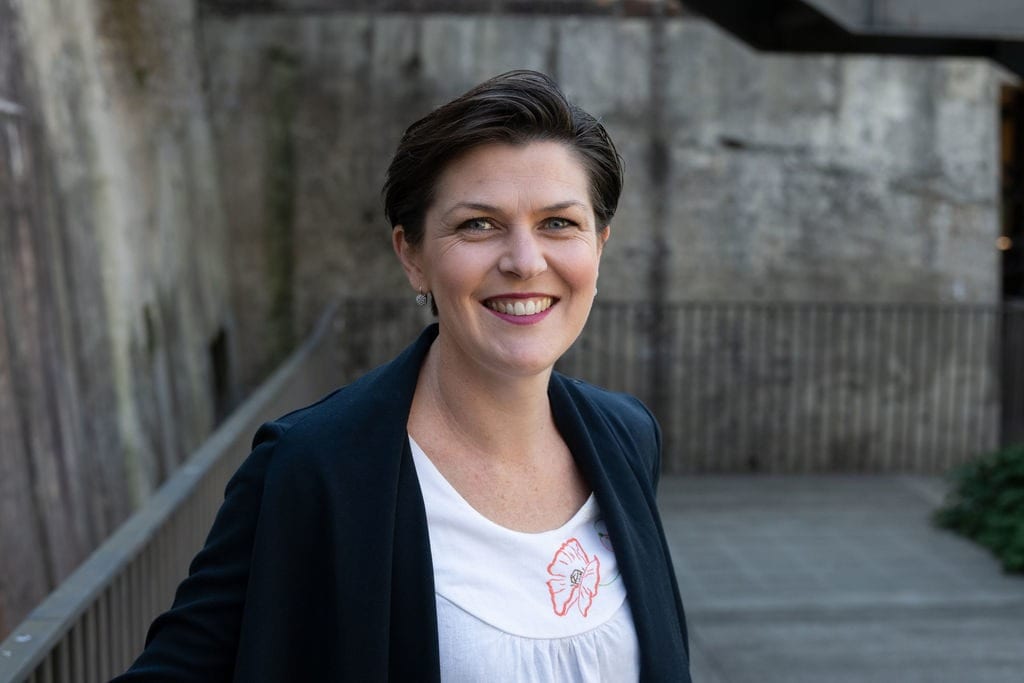The finance guru, and mother of three, believes there are simple measures people can take to gain control of their spending and there’s an obvious reason why we should: “If you keep putting it off, it’s huge lost opportunity,” she says.
Robertson has just released her debut book, Spenditude, co-written by her long-time colleague and friend, Paul Gordon.
The writing took roughly nine months to get on the page, but the ideas contained in it are drawn from the pair’s extensive experiences and knowledge working in the corporate financial sector in Australia.
As a general rule, any conversation that involves numbers, money or commerce sends me running a hundred miles—a possible coping mechanism to mask my illiteracy around money. But as a woman, who’s likely to lead a more unorthodox career trajectory, this book was important for me.
“Women have all these weird and wonderful career paths. The truth is, we do take time out of the work force, we do work part time, there is a gender pay gap -all of these things are real. If you don’t pay any attention to your money until later on in life, you’ll miss an opportunity,” Robertson stresses.
Thankfully, ‘Spenditude’ didn’t send me into an existential panic. It’s easily accessible, inclusive and most crucially, it imparts pragmatic strategies for the laywoman to change her approach to spending.
The book conveys different types of attitudes and behaviours one may have toward money, regardless of age, income or gender.
“It’s about awareness and core values. It’s about focusing on your own purpose,” Robertson says. “What is your focus? If you’re making decisions and you keep that focus in mind, you’re going to make better decisions to bring more joy into your life.”
I liken Robertson’s insights toward spending to dieting: Think twice about eating that second slice of caramel mud cake. Think twice about clicking on that ‘BUY’ button, that takes me to ‘CHECKOUT’.
The antidote to hasty purchasing decisions according to Robertson? Coffee.
“It’s a good way to stop and think before you make that final decision – whether in store or shopping online.”
According to ‘Spenditude’, we all have a spending ‘personality’. You can place yourself across three loosely divided positions along a line; if you’re extremely careful about money and budgeting, you’re a ‘Defender.’
If you’re on the other end of the spectrum and never budget, tap without thinking how much you’re spending, etc., you’re a ‘Spender.’ And, if you’re in the middle, like me, you’re a ‘Slender.’
In the book, she outlines 11 practical steps to optimise your spenditude. That’s ultimately what she wants you to do; optimise your life by changing the way you think about your money.
“Attitude is everything,” Robertson says. “Be aware of where you put your money. If you value good food, then it’s okay to spend money on good food. But you just need to know what your values are and have awareness of your financial position.”
Talking about money can be a daunting task, especially for women who’ve historically been socialised not to think about finances. But in an age where it’s now easier than ever to spend, we need to be conscious of what we’re doing and set appropriate boundaries.
A lot about money is about human psychology. What drives you in your guts?
“Often we’re told as women, that it’s your heart or head ruling your decision,” Robertson says. “I think it’s your gut; that feeling in your tummy. I want people to re-focus their money on what is important to them.”
Sometimes a motivation to change your finances is a door slamming on you. A door slam, as Robertson explains in the book, can come in the form of a death, losing a job, a divorce—anything that changes your life. But she cautions women not to wait for these moments to get on top of their spending.
“I think if you wait for these things to happen, it’s harder to cope with the situation, or it could be too late.”
“We all need a motivation to start making changes. It’s ok if you have been fearful about money and investing but women need to take action more than men, because of all those career trajectories. We need to do it earlier.”
One of the most crucial chapters in ‘Spenditude’, examines the importance of sleep in regulating our moods. Sleep affects how we operate, and it can also potentially heighten addictive behaviour. “I’m not saying spending is an addictive behaviour,” says Robertson, “but it could be for some people.”
If you want to make the most of your working day, you need to make sure you are alert and mindful of everything you are doing.
“We spend a lot of time focusing on our children’s sleep, and not on our own.”
Bringing a bit more focus to sleep can have long term gains. By regulating mood, you’re less likely to go searching for quick happiness boosts. “Sometimes we spend money to lift our mood,” says Robertson, but these quick fixes won’t sustain us.
As well as being an engaging and informative read, picking up a copy of ‘Spenditude’ could likewise be your good deed done for the day.
That’s because Robertson has partnered with Good Return, a charity that supports women to break the poverty cycle by improving their financial literacy and business skills. 50c from each book sold goes directly to the organisation.
“What I would really love people to do is be really aware of purpose. Ask the right questions: Are you spending money on those things that are bringing you joy, or not?”
“Empowered spending is making good spending decisions aligned to your values. Lifting your awareness to your current behaviours and attitudes. We have varied career paths; women need to re-wire all the time. Look at it, all the time and ask: Where am I up to now and what path am I on?”
You can find more information on the book here.



